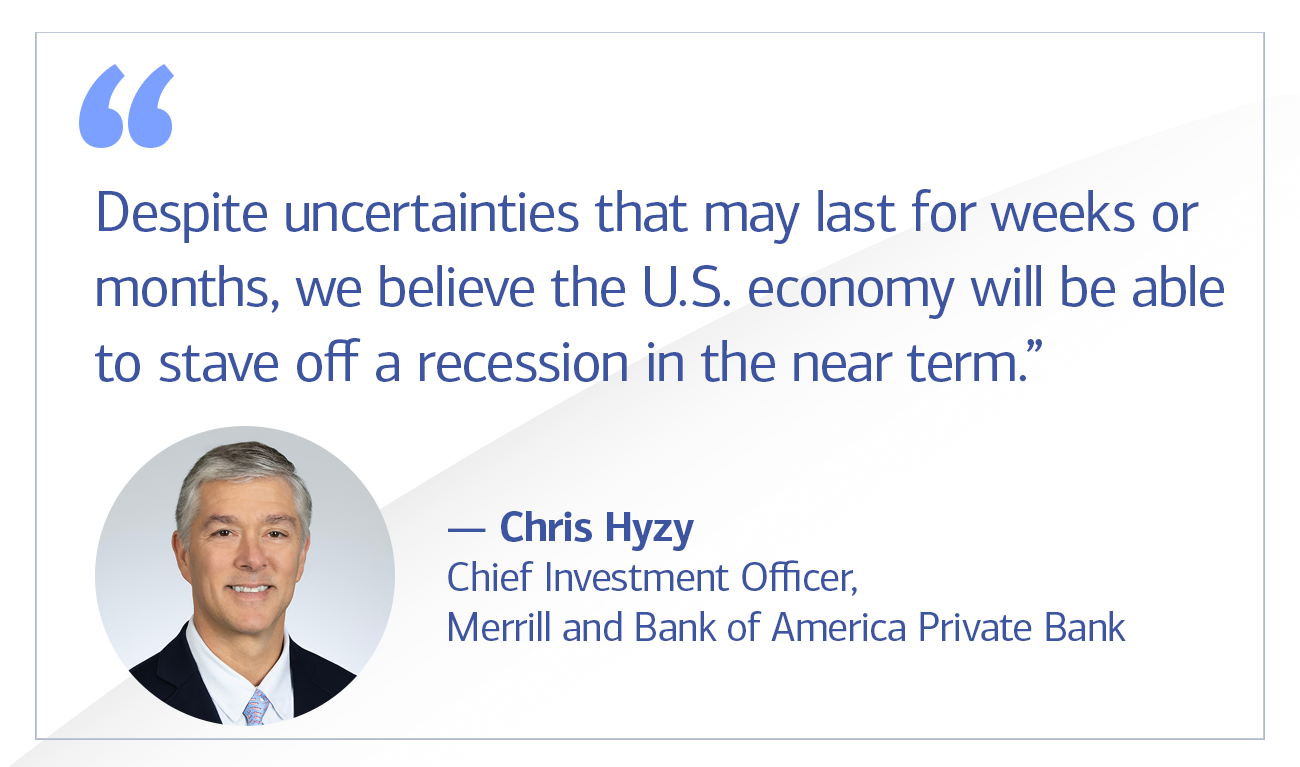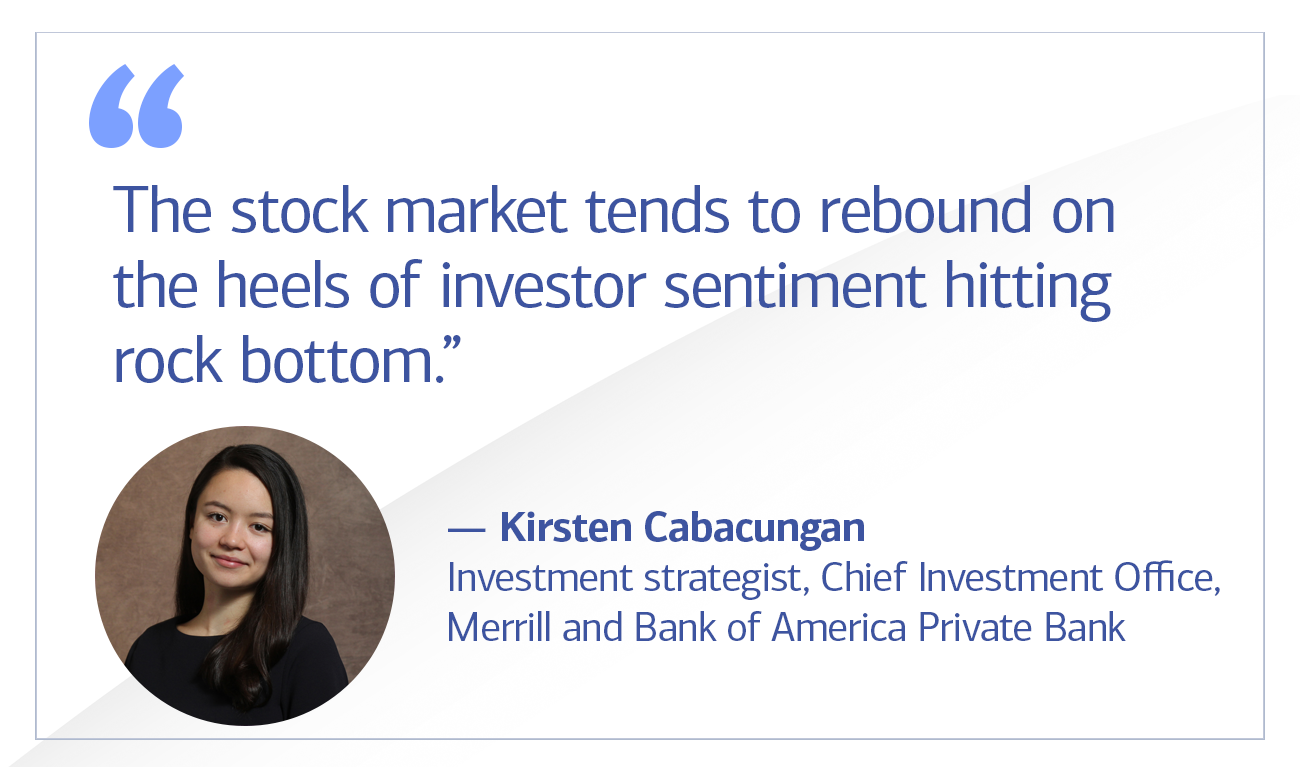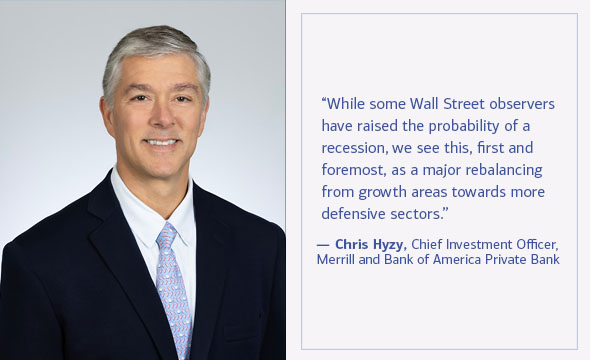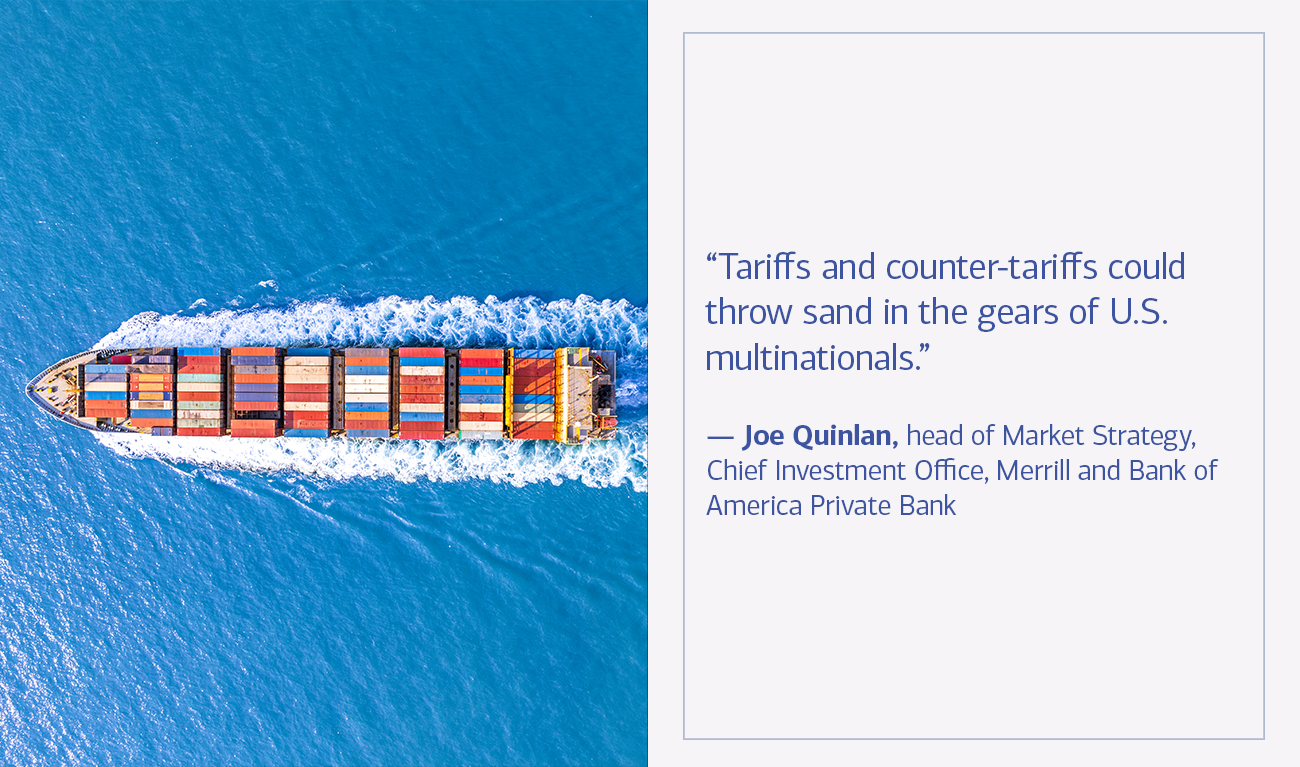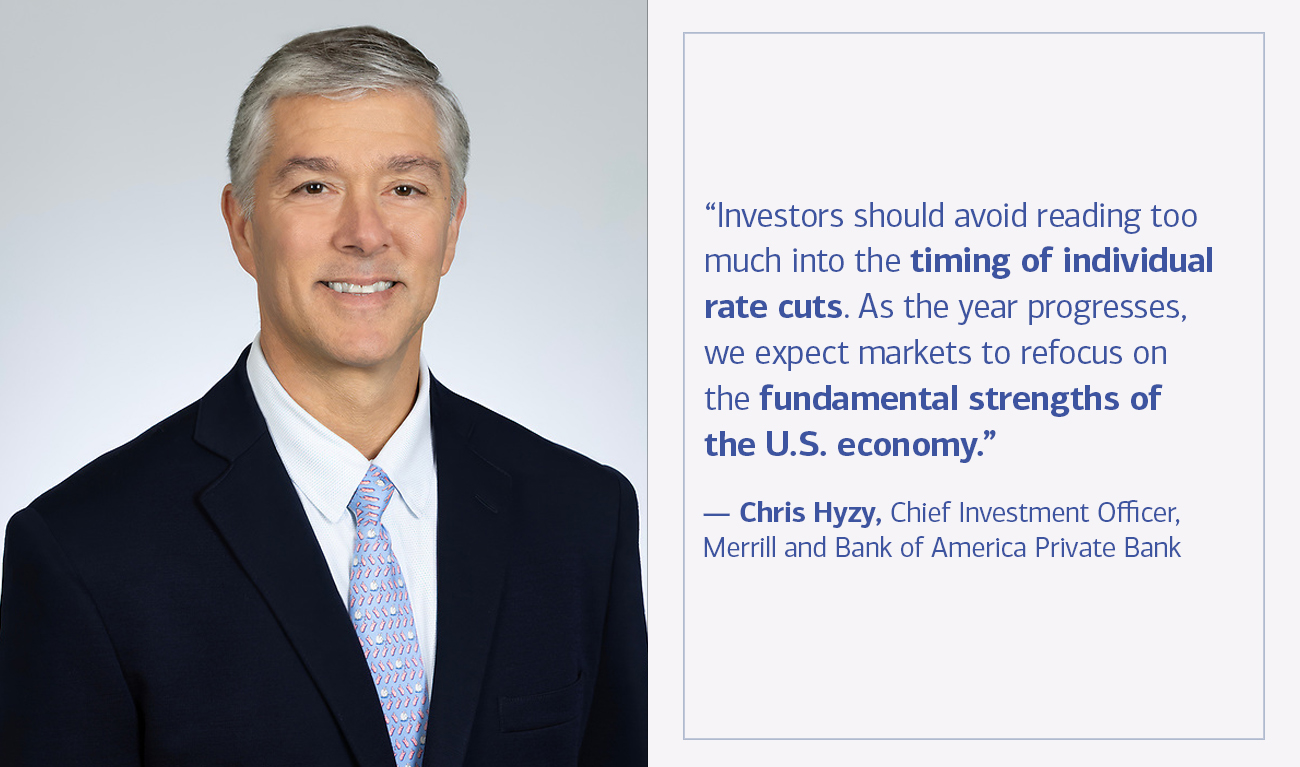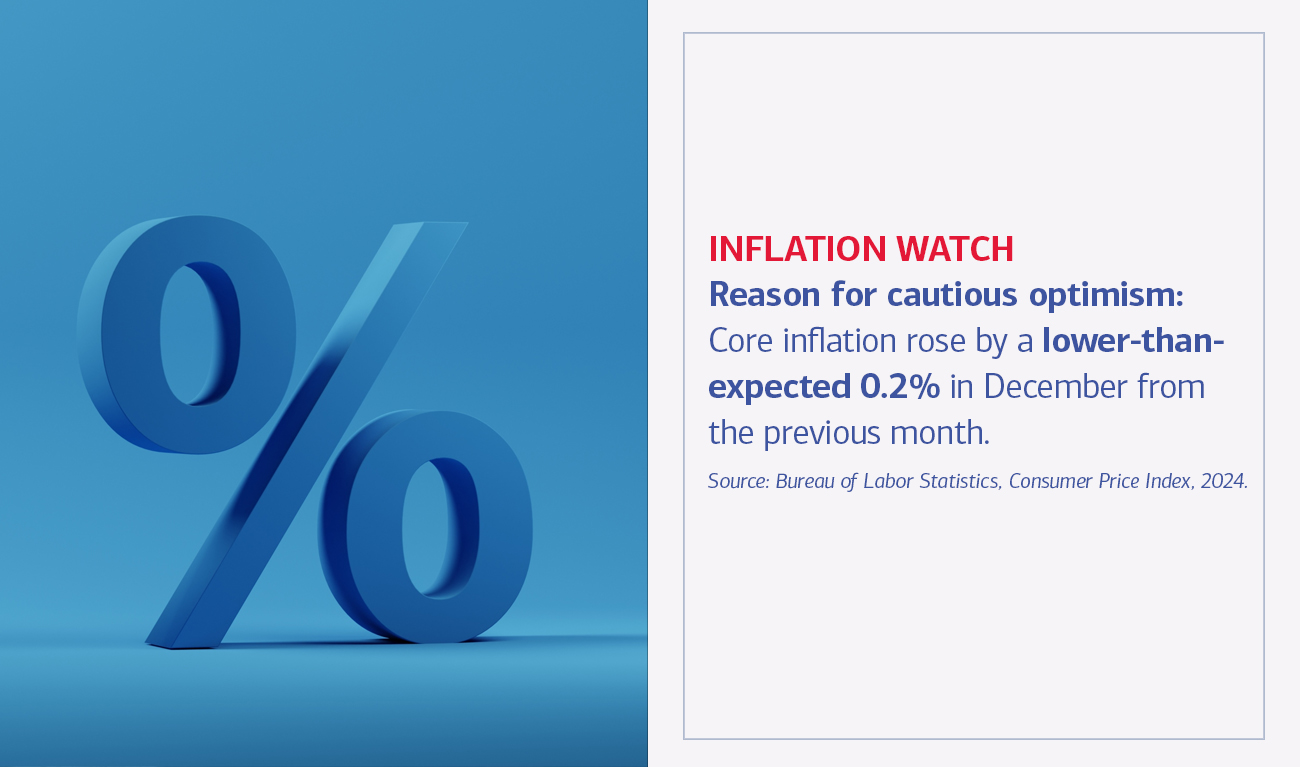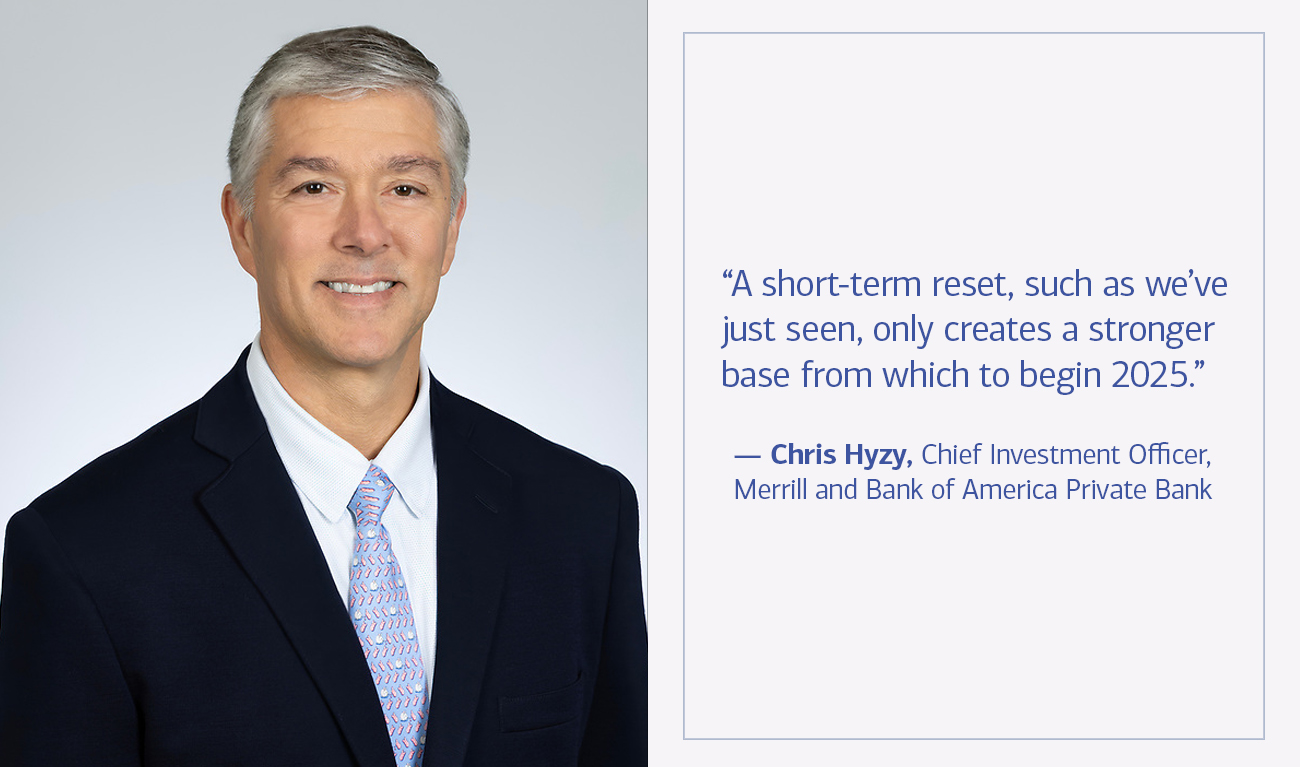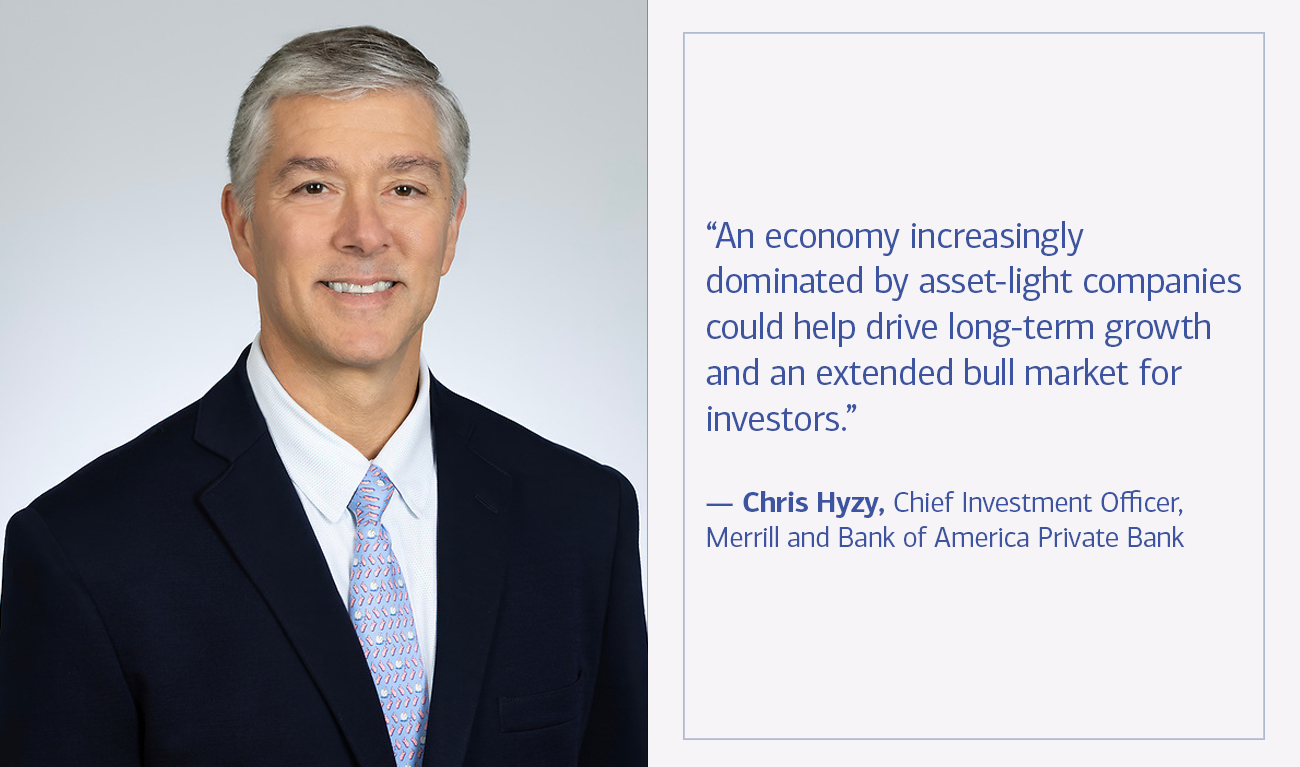Important Disclosures
Investing involves risk, including the possible loss
of principal. Past performance is no guarantee of
future results.
Opinions are as of the date of these articles and are
subject to change.
Bank of America, Merrill, their affiliates, and
advisors do not provide legal, tax, or accounting
advice. Clients should consult their legal and/or tax
advisors before making any financial decisions.
This information should not be construed as investment
advice and is subject to change. It is provided for
informational purposes only and is not intended to be
either a specific offer by Bank of America, Merrill or
any affiliate to sell or provide, or a specific
invitation for a consumer to apply for, any particular
retail financial product or service that may be
available.
The Chief Investment Office (CIO) provides thought
leadership on wealth management, investment strategy and
global markets; portfolio management solutions; due
diligence; and solutions oversight and data analytics.
CIO viewpoints are developed for Bank of America Private
Bank, a division of Bank of America, N.A., (“Bank of
America") and Merrill Lynch, Pierce, Fenner &
Smith Incorporated (“MLPF&S" or
“Merrill"), a registered broker-dealer, registered
investment adviser and a wholly owned subsidiary of Bank
of America Corporation (“BofA Corp.”).
All recommendations must be considered in the context
of an individual investor’s goals, time horizon,
liquidity needs and risk tolerance. Not all
recommendations will be in the best interest of all
investors.
Investments have varying degrees of risk. Some of the
risks involved with equity securities include the
possibility that the value of the stocks may fluctuate
in response to events specific to the companies or
markets, as well as economic, political or social events
in the U.S. or abroad. Bonds are subject to interest
rate, inflation and credit risks. Treasury bills are
less volatile than longer-term fixed income securities
and are guaranteed as to timely payment of principal and
interest by the U.S. government. Investments in a
certain industry or sector may pose additional risk due
to lack of diversification and sector concentration.
There are special risks associated with an investment in
commodities, including market price fluctuations,
regulatory changes, interest rate changes, credit risk,
economic changes and the impact of adverse political or
financial factors.
These risks are magnified for investments made in
emerging markets. There are special risks associated
with an investment in commodities, including market
price fluctuations, regulatory changes, interest rate
changes, credit risk, economic changes and the impact of
adverse political or financial factors.
Income from investing in municipal bonds is generally
exempt from Federal and state taxes for residents of the
issuing state. While the interest income is tax-exempt,
any capital gains distributed are taxable to the
investor. Income for some investors may be subject to
the Federal Alternative Minimum Tax (AMT).
Retirement and Personal Wealth Solutions is the
institutional retirement business of Bank of America
Corporation (“BofA Corp.”) operating under the name
“Bank of America.” Investment advisory and brokerage
services are provided by wholly owned non-bank
affiliates of BofA Corp., including Merrill Lynch,
Pierce, Fenner & Smith Incorporated (also referred
to as "MLPF&S" or "Merrill"), a
dually registered broker-dealer and investment adviser
and Member SIPC. Banking activities may be performed by
wholly owned banking affiliates of BofA Corp., including
Bank of America, N.A., Member FDIC.
You have choices about what to do with your 401(k) or
other type of plan-sponsored accounts. Depending on
your financial circumstances, needs and goals, you may
choose to roll over to an IRA or convert to a Roth
IRA, roll over a 401(k) from a prior employer to a
401(k) at your new employer, take a distribution, or
leave the account where it is. Each choice may off er
different investments and services, fees and expenses,
withdrawal options, required minimum distributions,
tax treatment (particularly with reference to employer
stock), and provide different protection from
creditors and legal judgments. These are complex
choices and should be considered with care.
Diversification does not ensure a profit or protect
against loss in declining markets.
Sustainable and Impact Investing and/or Environmental,
Social and Governance (ESG) managers may take into
consideration factors beyond traditional financial
information to select securities, which could result in
relative investment performance deviating from other
strategies or broad market benchmarks, depending on
whether such sectors or investments are in or out of
favor in the market. Further, ESG strategies may rely on
certain values based criteria to eliminate exposures
found in similar strategies or broad market benchmarks,
which could also result in relative investment
performance deviating.


